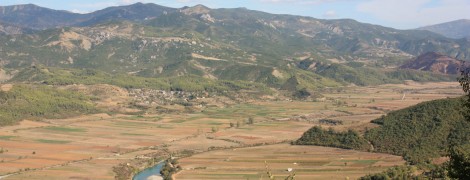|
Digital meets Culture https://www.digitalmeetsculture.net/article/memola-rehabilitates-the-traditional-irrigation-system-of-barjas/ Export date: Thu Apr 3 3:39:15 2025 / +0000 GMT |
MEMOLA rehabilitates the traditional irrigation system of BarjasAfter twenty years of abandonment, and even forty in the case of the branch of La Hijuela, the traditional irrigation system of Barjas (Granada, Spain) was rehabilitated in collaboration with the National and Natural Park of Sierra Nevada and CEAMA. This campaign was undertaken between the months of February and March of 2014, using traditional techniques and knowledge provided by the local irrigators' community. This activity involved 180 national and international volunteers and concluded with 5 kilometres of the channels restored, including the branch of La Hijuela. The initiative was launched and led by the MEMOLA project, an interdisciplinary approach to cultural landscapes of Mediterranean mountainous areas, taking as a central axis the historical study of two natural resources essential to generate agro-systems: water and soil. The study focuses on four areas: Sierra Nevada (Spain), Monti di Trapani (Italy), Colli Euganei (Italy) and Vjosa Valley(Albania). Landscapes and their structure are strongly conditioned by the need to ensure the livelihood of rural communities over time. Essentially they are the spatial representation of production and reproduction strategies of societies over time. Understanding them necessarily requires knowledge of the historical processes that have led to specific relationships with nature: mainly extraction and use of resources. These uses have largely shaped the medium, generating not only its shape, but also the culture that makes possible its management and maintenance. The various exploitation strategies have resulted in different landscapes and forms of cultural expression throughout Europe and the Mediterranean, but have also produced very important common areas. Agro-systems represent one of their greatest expressions. Agricultural traditions and the different ways of exploiting natural resources including management over time are crucial for conservation of the landscape and its ability to adapt to current global changes: globalisation and agrarian industrialisation, loss of peasant knowledge, loss of rural population and climate change. Conservation can be achieved through the exploitation of this heritage to generate environmental and cultural conservation strategies for sustainable development in rural areas; with the aim of protecting this cultural heritage and, at the same time, increasing and transmitting knowledge about it in order to benefit the local and wider European society. MEMOLA's main objectives are 1)investigating the logic that rules the process of historical landscapes formation in relation to natural resources within a diachronic framework 2)introducing the historical perspective (4th dimension), which is considered to be a powerful interpretation key, in landscape studies:
For more information visit the MEMOLA project's website |

